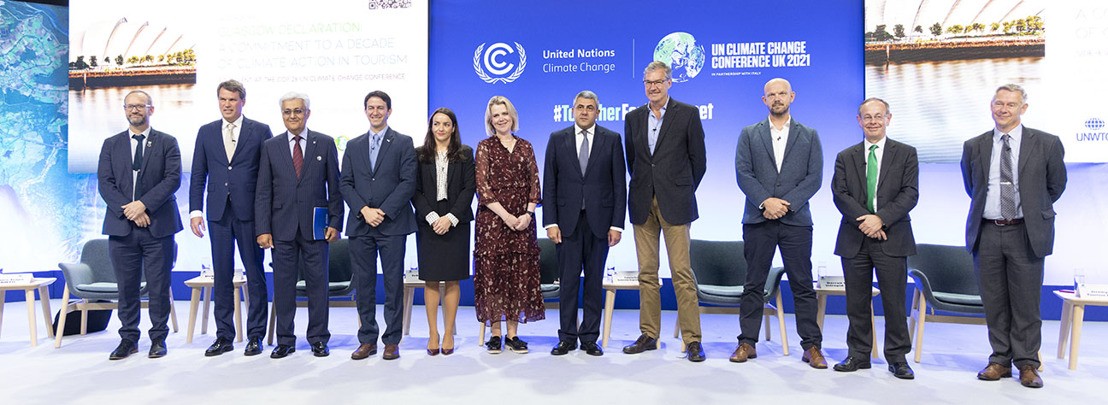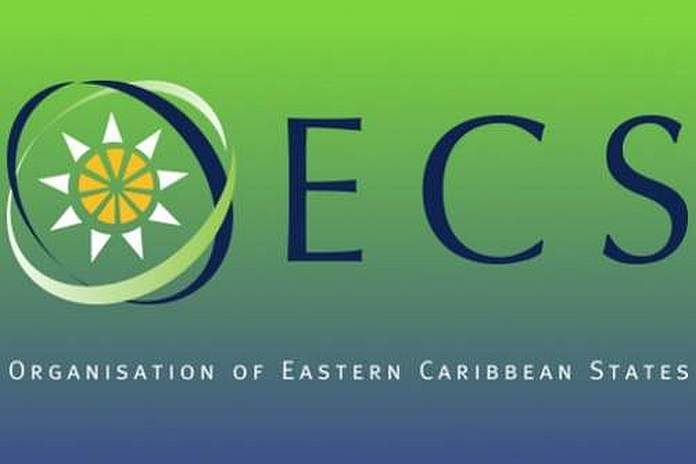CASTRIES, St Lucia — The Organisation of Eastern Caribbean States (OECS) has committed to working with tourism stakeholders on Climate Change, and announced that it has become a signatory of the Glasgow Declaration on Climate Action in Tourism.
Ahead of leading an OECS delegation to COP26, OECS director-general, Dr Didacus Jules explained the rationale for the commitment:
“We had absolutely no hesitation in signing the tourism declaration as it conforms to all the principles and the ambitions that our Member States are championing at COP26.”

The Glasgow Declaration on Climate Action in Tourism unites travel and tourism behind a common set of pathways for climate action, aligning the sector with global commitments and catalysing collaborative solutions to the many challenges facing businesses and destinations globally. The Glasgow Declaration encourages the acceleration of climate action in tourism, by securing commitments to reduce emissions in the sector by at least 50 percent over the next decade, and achieve Net Zero as soon as possible before 2050.
As a signatory of the Glasgow Declaration on Climate Action in Tourism, OECS has agreed to deliver or update climate action plans within 12 months, align plans with the five pathways of the Declaration (Measure, Decarbonise, Regenerate, Collaborate, Finance), report publicly on an annual basis, and work in a collaborative spirit, sharing good practices and solutions, and disseminating information.
The intent of the Glasgow Declaration is to urge and enable all travel and tourism stakeholders to sign and demonstrate, for the first time as a united sector, a shared voice and commitment to aligning the sector’s climate ambitions with scientific recommendations and international agreements.
Dr Jules expressed his keenness on the OECS being part of the solution:
“The OECS is one of the most dependent Tourism regions in the world and the tourism sector is highly vulnerable to climate change. I am excited about this partnership and how it can help our tourism sector get aligned to the climate change agenda.”
Dr Jules noted that it is critical that tourism be brought on board as a climate change agent. He acknowledged that funding was often a deterrent to making the necessary changes, however, there may be opportunities emanating from being a signatory. He added, “Declaring our commitment hopefully will open some doors to much-needed climate funds and sustainable investment in the tourism sector.”
The Glasgow Declaration on Climate Action in Tourism brings together the latest research and global expertise to galvanise climate action. It will be hosted within the One Planet Sustainable Tourism Programme’s website, supported by Recommended Actions for tourism stakeholders across the world to consider as part of their action planning, alongside other resources.
As the declaration states:
“A just transition to Net Zero before 2050 will only be possible if tourism’s recovery accelerates the adoption of sustainable consumption and production, and redefines our future success to consider not only economic value but rather the regeneration of ecosystems, biodiversity and communities.”
The Commission in the coming weeks will further engage tourism stakeholders in the Eastern Caribbean on the plan of action towards meeting commitments.
UNWTO officially launched The Glasgow Declaration at COP26 on November 4, 2021.





